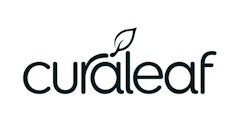
All eyes are again on Florida, but this time as it relates to the hemp industry instead of the citizen-initiated constitutional amendment to legalize adult-use cannabis in the November 2024 election. At center stage is Senate Bill 1698, which was passed by the state Senate, 39-0, and House, 64-48, and is headed for Gov. Ron DeSantis’ desk for his signature—or, as many in the hemp industry hope, his veto.
The legislation makes significant changes to the state hemp program, including:
- prohibiting the sale of synthetic cannabinoids and intoxicating cannabinoids, including delta-8 THC, delta-10 THC, THCA, HHC, THCV and THCP;
- revising the definition of “hemp” to “outline that hemp extract may not exceed 0.3 percent total delta-9-tetrahydrocannabinol concentration on a wet-weight basis or exceed 5 milligrams per serving and 50 milligrams per container on a wet-weight basis, whichever is less;”
- creating “a definition for ‘total delta-9-tetrahydrocannabinol concentration’ to mean a concentration calculated as: [delta-9-tetrahydrocannabinol] + (0.877 x [delta-9-tetrahydrocannabinolic acid]); and
- modifying “the definition of ‘attractive to children’ to include containers displaying toys or other features that target children,” as well as providing additional packaging requirements.
“Consumers like [Paige] Figi have warned that the bill, SB 1698, would ban some products, including some CBD extracts that don’t create a ‘high’ sensation and are marketed for a range of uses, including joint and muscle pain, insomnia and anxiety,” Tamba Bay Times reported, referring to CBD advocate and mother of the late Charlotte Figi, the young girl with a rare form of intractable epilepsy who was the namesake behind the Stanley Brothers Charlotte’s Web CBD strain and whose story help ignite CBD’s popularity in the U.S.
The governor’s office did not comment in response to Cannabis Business Times’ inquiry as to whether the governor planned to sign or veto the legislation; it only commented on the next steps.
“Governor DeSantis will review the legislation in its final form once it is delivered to our office,” Julia Friedland, deputy press secretary for the Executive Office of the Governor, told CBT. “Our office will send out an alert through our list-serv and post the alert on our website when we receive legislation.”
CBS News Miami, however, reported that DeSantis is “likely” to veto the bill: “At the same time Governor Ron DeSantis has come out against a constitutional amendment to legalize marijuana in Florida, he is likely to throw an unexpected lifeline to the hemp industry by vetoing a bill that would regulate and limit the sale of cannabis products such as delta 9, according to four sources familiar with the discussions inside the governor's office,” the media outlet reported.
It also reported in its May 30 article that it “learned that late last week, DeSantis' chief of staff, James Uthmeier, called the sponsor of the hemp bill, Senator Colleen Burton, to inform her the governor was going to veto the bill. According to two sources, Burton became irate and lambasted Uthmeier, prompting him to tell the senator they would take a second look at the bill. … Burton declined to comment on the call, telling CBS Miami, ‘The governor is in the process of reviewing the bill.’"
Thousands have voiced opposition to the bill. “The governor’s office has logged more than 13,000 phone calls, letters and emails from groups and individuals pushing for a veto,” according to Tampa Bay Times. “Less than 100 people have reached out in support of the legislation, according to numbers provided by the governor’s office.”
The U.S. Hemp Roundtable (USHR) has been leading an effort to urge the governor to veto the bill, which the organization says “would eliminate much of the hemp products industry in Florida, killing retail business and farmer opportunities.”
DeSantis’ veto against the hemp legislation “could save over 10,000 small businesses and preserve more than 100,000 jobs across the Sunshine State,” Save Florida Hemp advocacy group stated in a press release. The organization launched a petition to urge DeSantis to veto the bill; as of June 5, 43,982 people had signed it.
"Governor DeSantis' consideration of a veto is a beacon of hope for the small business owners and workers who are the backbone of Florida's economy," Patrick O’Brien, with Save Florida Hemp, said in the release. "This is not just about hemp; it’s about defending the principles of free enterprise and economic diversity that have made Florida a powerhouse."
“As the debate heats up, the eyes of the nation are on Florida, watching whether it will follow in the footsteps of states like California, where heavy regulation has pushed similar industries into the shadows, bolstering black markets and out-of-state monopolies,” Save Florida Hemp stated.
In the U.S., the hemp-derived cannabinoid market is “conservatively” estimated to be $28.4 billion, according to Whitney Economics’ “2023 National Cannabinoid Report,” making the market size the same as the 2022 craft beer market.
The report also found that the U.S. “hemp-derived cannabinoid industry employs over 325,000 workers,” and “hemp cannabinoid operators pay in excess of $13.2 billion in wages.”
The massive market for hemp-derived cannabinoids, from nonintoxicating CBD to intoxicating delta-8 THC and the semi-synthetic THCO, emerged from what some have called a “loophole” or “unintended consequences” of the 2018 Farm Bill. A state patchwork of regulations have emerged around intoxicating cannabinoids that fall outside of the purview of state-legal cannabis markets (aside from one or two states that have decided to regulate them under the state’s cannabis program).
“Much, if not all of the legislation that is being introduced and some, making it to their governors’ desks, are trying to address the issues relating to synthesized hemp products that are now appearing on store shelves, and gas stations and bodegas across this country,” Geoff Whaling, National Hemp Association Chair, told CBT. “The packaging is very attractive to children, and the FDA is receiving dozens of adverse effect reports.
“Also, and more importantly,” Whaling said, “is that those of us in leadership positions within the hemp industry absolutely want to assure product safety. I started in this space helping those families who were just learning about the potential of cannabinoids to help their family members who were suffering from neurological disorders. Safety is paramount. Lives depend on it.”
He said that he is “certainly … sympathetic” to “knowing that there have been millions of dollars invested in developing products, manufacturing and production facilities, because legislation was in place supporting that investment. However, none of us who had a seat at the table in the development of the … Hemp Farming Act of 2018, which became part of the Farm Bill, had any idea that intoxicating products could be made from this incredible plant,” he said. “I remind that there are some 150-plus minor cannabinoids in this plant.”
The conversation of whether the sale of these intoxicating hemp-derived cannabinoids should be prohibited is also happening at the federal level as the new iteration of the Farm Bill has been drafted and is currently moving through review in Congress.
"Most definitely there is a need for federal legislation," said Whaling. "And it will be very difficult given that the industry has been operating in a grey zone for 5 years and being given conflicting messages from various federal agencies."
In the meantime, Florida is on deck to potentially become the newest state to attempt to ban them.
“Currently, a policy change in one state will have an impact on multiple other states,” the Whitney Economics’ report’s Supply Analysis section stated. “Policymakers may not realize this when they implement legislation in their states. This example demonstrates the importance of national policies that govern the industry, versus the current, state-by-state, patchworked approach.”
CS/SB 1698: Food and Hemp Products’ provisions are set to take effect Oct. 1, 2024, if the governor signs the bill or allows it to become law without his signature.



























